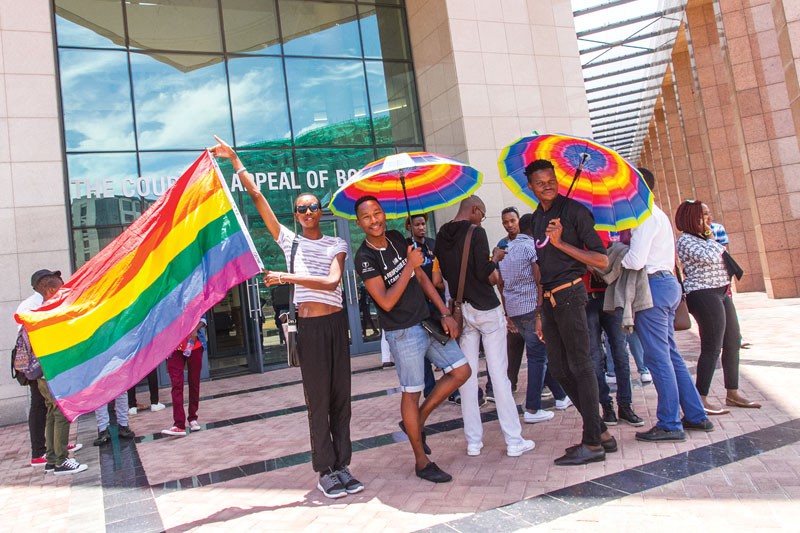Batswana warm up to gays, study shows
Tefo Pheage | Wednesday March 9, 2016 18:00


Entitled ‘Good Neighbours’, the perception survey asked respondents whether they would be opposed to having homosexual neighbours. Thirty-three countries participated in the study released this week.
In four countries, Cape Verde, South Africa, Mozambique and Namibia, more than 55 percent of citizens there are accepting homosexuals as neighbours, according to the study.
“In three other countries, more than 40 percent of citizens say they are not opposed to having homosexual neighbours, with Mauritius at 49 percent, São Tomé and Principe at 46 percent and Botswana at 43 percent,” says the report. On the other end of the scale, however, intolerance towards homosexuality was found in the high 90s in Senegal (97 percent) as well as Guinea, Uganda, Burkina Faso, and Niger (all 95 percent).
According to the report, Southern Africans are the most tolerant to homosexuals with 32 percent saying they do not mind gays, followed by Central Africa with 25 percent, North Africa with 17 percent, West Africa with 15 percent and lastly East Africa with 12 percent. “A large majority of African citizens are intolerant of homosexual citizens. Across the 33 countries, an average of 78 percent of respondents say they would ‘somewhat dislike’ or ‘strongly dislike’ having a homosexual neighbour,” the report says.
Afro Barometer researchers pinpointed Mozambique as an interesting demonstration of how policy change may interact with popular attitudes.
“In 2014, Mozambique adopted a new penal code that decriminalises homosexuality.
“Since there are no available data on Mozambicans’ attitudes toward homosexuals prior to decriminalisation, we may debate as to whether relatively high acceptance precipitated decriminalisation or the legal reform has had the added benefit of influencing attitudinal change among the wider citizenry.
“The two countries expressing the highest tolerance for homosexual citizens, Cape Verde and South Africa, also do not criminalise homosexuality,” researchers said..
The study also found that in some cases, ordinary citizens are ahead of law reform by embracing homosexual rights at a time when some practices are illegal in their countries. This is true in Namibia and Mauritius, two countries with comparatively high acceptance of homosexuals despite legislation that make homosexuality a crime.
The data further suggested an important link between tolerance for homosexuals and respondents’ age and education levels.
“Younger and more educated Africans tend to be more tolerant of homosexuals than older Africans and less educated citizens,” researchers said.
“This finding suggests that while current attitudes are largely negative, it is possible that Africa will become progressively less homophobic over time.” The researchers said contrary to common portrayals, Africans expressed high degrees of tolerance for people from different ethnic groups, of different religions, immigrants, and people living with HIV/AIDS.
